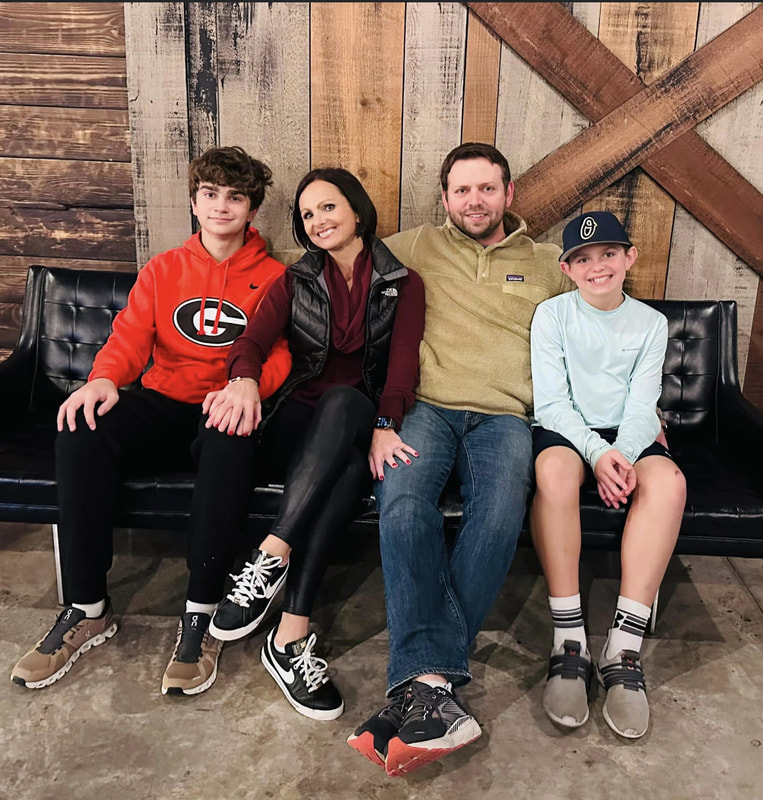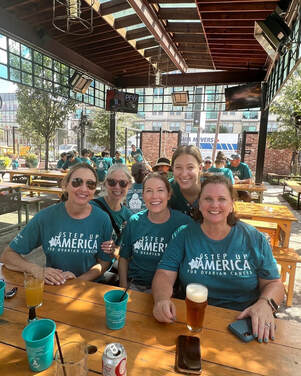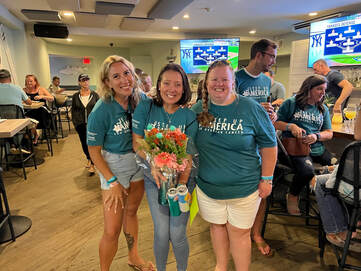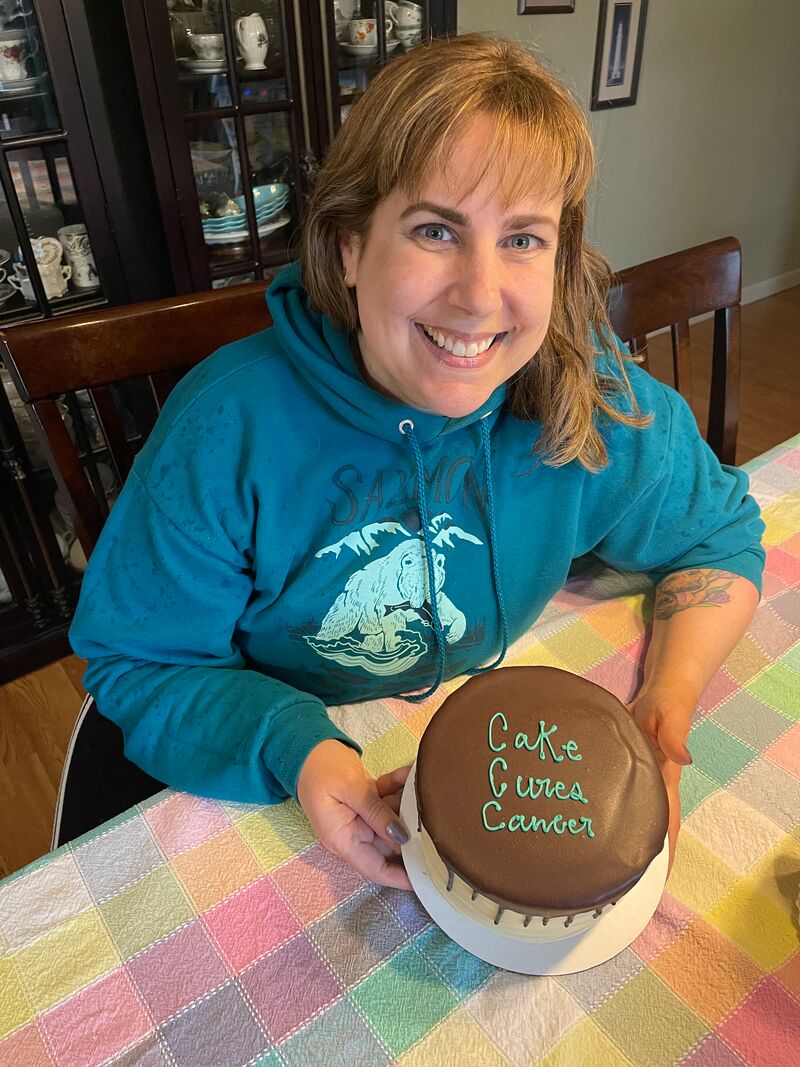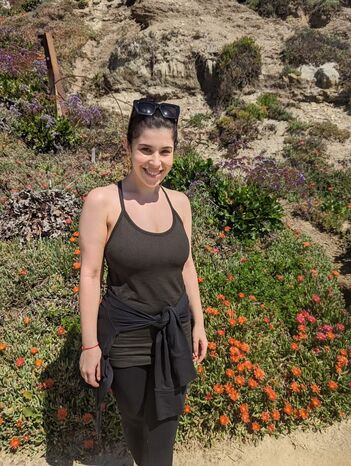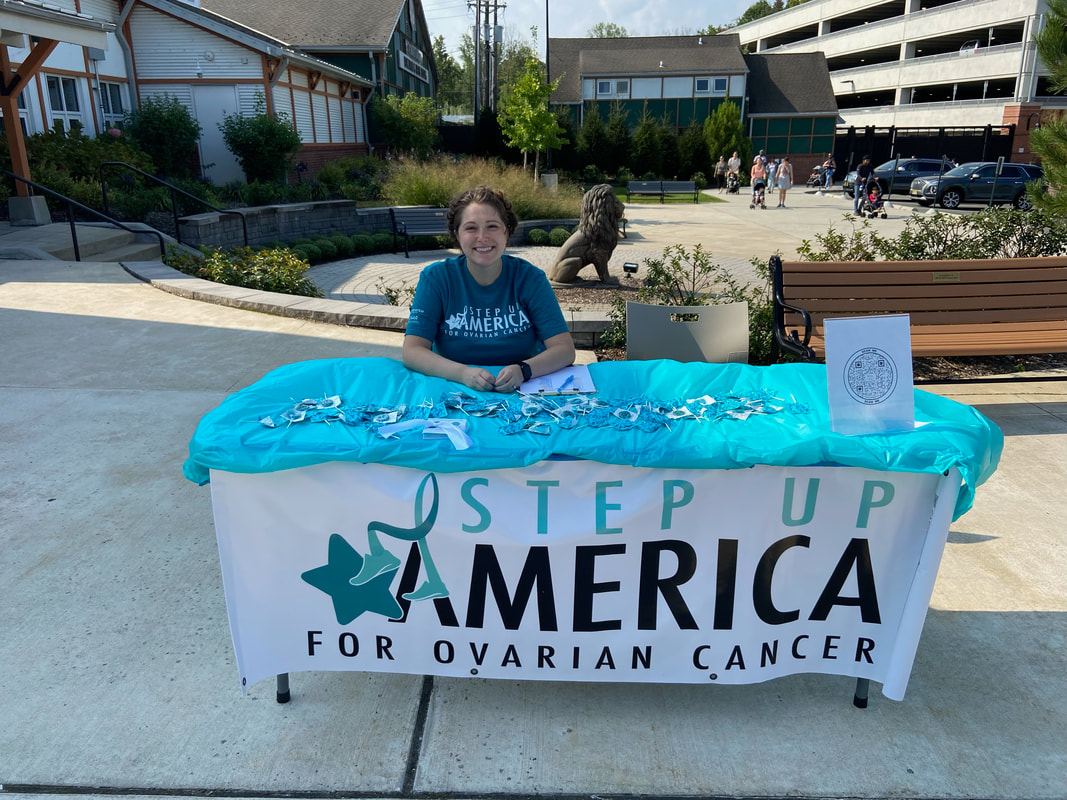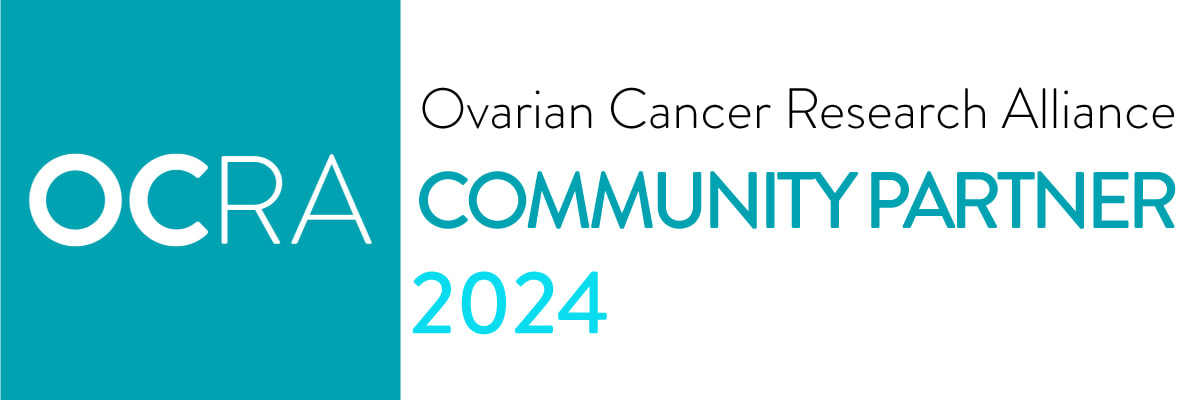|
One of STAAR’s founders, Bailey Wolfe was diagnosed with stage 3A low-grade
serous ovarian cancer in 2019. A mother of two boys, her biggest fear was that she wouldn’t be around to see them grow up. After surgery, chemo, and several bumps along the way, Bailey lives with the debilitating fear that the cancer will come back. “The fact that I have had cancer still blows my mind! Yet again, in the same breath it never leaves my mind, constantly nagging with worry,” she said.
|
|
STAAR board chair Nicole Andrews was diagnosed with LGSOC in May 2020. She
organized a pandemic-friendly 5K for Ovarian Cancer Awareness Month that September—while still undergoing chemotherapy—and raised $25,000. A retired associate professor from the University of Houston, Nicole joined the STAAR board in 2021. “I didn’t know the symptoms associated with ovarian cancer and assumed those I was having (menstrual irregularities, indigestion, fatigue) were linked to other things like perimenopause, not sleeping well, etc.,” she said.
|
|
STAAR secretary Morgan Gaynor already was involved in leadership and nonprofits when she found out—at age 30—that she had stage 4 low-grade serous ovarian cancer. After a 9-hour surgery and 6 rounds of chemo, followed by ongoing medication to block the production of estrogen, Morgan has no evidence of disease and serves on the STAAR board as secretary. Morgan advocates at the federal, state, and local levels on behalf of ovarian cancer patients for increased funding for ovarian cancer research and awareness with OCRA and participates in their Survivors Teach Students program where ovarian cancer survivors share their stories with medical students to bring awareness to the subtle ovarian cancer symptoms.
After a 9-hour surgery and 6 rounds of chemo, followed by ongoing medication to block the production of estrogen, Morgan has no evidence of disease and serves on the STAAR board as secretary. |
|
Kari Neumeyer, STAAR Vice Chair–Marketing & Communications, was 44 years old when she was diagnosed with stage 4C low-grade serous ovarian cancer in 2020, after a biopsy of a small growth in her navel. To her knowledge, she hadn’t experienced any of the textbook symptoms of ovarian cancer. Scans showed tumors in each ovary and one in the center of her abdomen that spread through her umbilicus out her navel.
“My belly button saved my life.”
Three rounds of chemotherapy failed to have any effect on the tumors, but her gynecologic oncologist removed all of the cancer she could see. Kari takes the
aromatase inhibitor Letrozole and has had no evidence of disease since her surgery. “Nobody should have to die in their 20s and 30s because of this disease,” she said. “What makes me feel empowered is helping fund research to find more treatments so there are more options for people when they have recurrences.” |
|
STAAR board member Emma Schlamm was diagnosed with low-grade serous ovarian cancer in 2020 at 25 years old.
“I had no family history of ovarian cancer and I didn’t experience any of the major warning signs. Partly because of my age, my doctors never imagined that the small mass on my ovary could ever be cancer.” Frustrated by the lack of attention, funding, and research that was available regarding this rare cancer that disproportionately affects young women, Emma was delighted to find STAAR to connect with other survivors and allies who were passionate about bringing attention to this disease and raising funds to develop and disseminate better treatment options. “STAAR keeps me hopeful that with awareness, feasibility and funding for research, we can improve the statistics of this deadly disease.”
|
|
STAAR board member Ellie Habib was told she had IBS or maybe endometriosis before she was diagnosed with stage 3C low-grade serous ovarian cancer at the age of 27.
“I want people to know that the symptoms are vague and there is no widely used screening tool,” she said. “You're in charge of your own health and you have the right to push for more testing if something doesn't feel right. I think many doctors dismiss the concerns of young people (but especially women) but cancer does not discriminate by age.
|
Subscribe to Our Mailing ListStay up to date on volunteer opportunities, research we've funded, and more by joining our mailing list!
|
|

